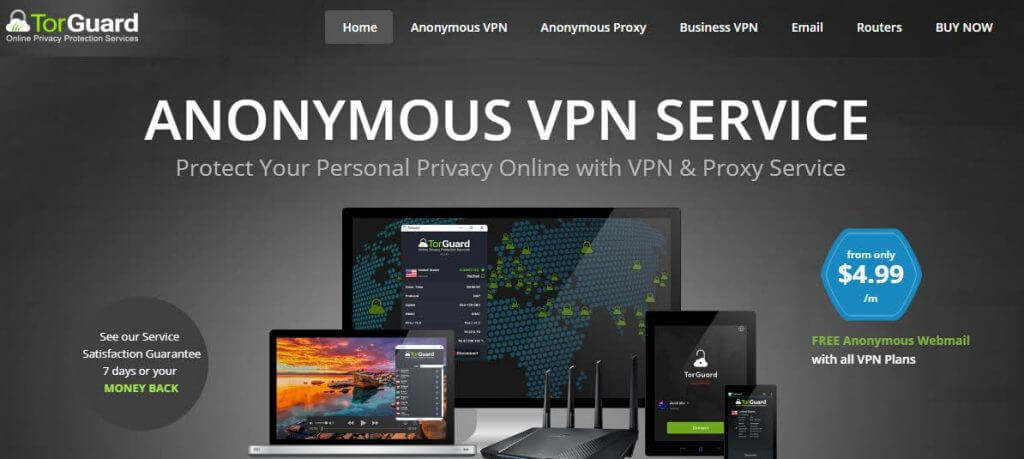The need for online and data privacy is obvious. Hackers have compromised everything we do or share online, so it is better to gain protection with VPN apps. These services are equipped to encrypt your traffic and IP address so you can successfully avoid cybercriminals and any other threats. However, there are several VPN scams out there that have taken advantage of people’s desperation.
Sometimes, it is not easy to identify these hazards or security risks that are often masked behind an efficient marketing campaign. Here are the six most apparent VPN scams you need to avoid:
| Pick a VPN! | VPN | Price for 1 month sub | Site Rating | Buy Now |
| Best VPN |  | $5 a month (code "best10VPN") | 9.9 |  |
| Good VPN |  | $9 a month | 8.9 |  |
| Decent VPN |  | $6.95 a month | 8.8 |  |
#1 Lifetime VPN subscriptions
It sounds like music to your ears: for a minimal fee, you could enjoy a “lifetime VPN subscription,” and you will be protected from hackers and government censorship as long as you are alive. However, that’s usually too good to be true.
A reality check is enough to understand that managing a VPN service requires some costs, such as server maintenance, security features, an efficient support team, and robust encryption, to name a few. There are recurring costs that need to be covered in a consistent basis.
The only reason why a VPN brand may be offering a cheap “lifetime” subscription is to gather more users and collect their data logs to sell them online to the highest bidder. That would eliminate any privacy benefits that the client may have.
The online data business moves around lots of money. So if you think your traffic may be worthless, think again. There are external agents out there looking to show you endless ads and redirecting your web browser to third-party sites to make a profit.
Bottom line, the most likely scenario involves your VPN canceling your “lifetime” subscription after a couple of years. These suspicious VPN apps act under a similar setting as the Ponzi scheme, so you need to stay away since, by lifetime, the enterprise means its lifespan and not yours.
#2 Free VPN brands
Putting every free brand in the same bag and saying that all of them are VPN scams may not be responsible. However, the vast majority of them are a fraud because they fail to deliver the most crucial objective as mandated by the industry’s standards: protect the user’s online and data privacy.
Why don’t free VPNs protect their customer’s privacy? Because they are more worried about collecting the users’ logs and selling them around the Internet to online advertising companies, e-commerce sites, and other web stores. They need to know what people like, visit or do online to make direct ads and increase the probabilities of selling their products.
These free VPNs, therefore, will earn a commission per each completed sale, or they will receive payment once they have handed the customers’ data logs to these third-party companies.
After all, maintaining a VPN service is costly, at least a quality one. The company needs to make specific investments, and they have to raise money somehow, don’t they? Next time, don’t fall for free VPNs, as they are a scam. They sell your data, they show you ads, they have data caps, and they can put you in contact with malware.
#3 Fraudulent VPN apps
A VPN doesn’t need to be free to be fraudulent. It can also be a paid service that doesn’t do its encryption and protection job properly. After all, not every brand is prepared to safeguard your data from government censorship or your Internet Service Provider.
There are numerous benefits that VPNs can bring to your life. The problem is not the industry per se: the issue remains the quality of most VPN apps. You need to be very careful when choosing your provider.
A whopping 84% of VPN brands will leak your real IP address, while 82% of them will at least attempt to access your sensitive data. Three-quarters of the VPN companies use third-party tracking, and nearly 40% are infected with malware.
The most frightening thing about it is that some of the VPNs that are malware-infected and steal your data have excellent reviews and are seen as secure by most beginners in the industry. Almost 20% of all VPNs don’t even encrypt your data!
#4 Fake VPNs
This one is worse. One of the most dangerous VPN scams is fake brands. These “apps” are managed by cybercriminals claiming to be responsible, privacy-conscious enterprises that will protect your digital assets from the enemies on the web. However, they are the foe, as they gain access to your content and online identity and can do anything they want with that material.
These fake VPNs claim to encrypt your data, but in reality, there is no VPN service. No content encryption, no access to foreign servers, and no exciting security features and offerings. Scammers are adept at making people believe they are dealing with a trustworthy company.
There are specific signs you can use to identify fake VPNs:
- It is tough to check their reputation online. In other cases, they create or buy lots of positive reviews and delete negative ones.
- They are free. You now know why you should avoid these brands.
- They have superlative claims that sound too good to be true.
- They have no social media or community presence.
- Their customer service is weak.
- They are on VPN warning lists.
#5: Hard-to-keep promises and superlative offerings
The VPN industry is full of spectacular claims that sound incredibly convenient for users but are hard to fulfill by VPN brands. A little skepticism can save you from having your online security compromised.
Some of the most apparent promises are:
- “We collect absolutely no logs of your data” (especially followed by the bits of information that the company keeps)
- “The world’s fastest VPN” (there can’t be 274 world’s fastest VPNs)
- “100% anonymous browsing.”
- “No data leaks.”
It’s not that they are all a lie. Specific companies are right to claim that some of these promises are fulfilled. However, the key is to test every feature before believing the statements. Fortunately, there are ways to do it online. Hiring a VPN with a money-back guarantee would be perfect.
#6 Fake reviews and comments
User reviews can be easily manipulated. For starters, many comment and review sites are owned and administrated by VPN brands, creating a conflict of interests in which users are the losing side.
Various VPN companies also buy positive reviews or have enough power or influence to delete negative comments. That is why it is vital to trust only reputed blogs and online sites within the industry.
TorGuard: the #1 trusted VPN app

If you want a reliable app that won’t be mistaken as a VPN scam, then TorGuard should be your first choice. It has been on the market for a long time with excellent reviews on trusted blogs and platforms.
TorGuard has a broad network that comfortably surpasses the 3,000 server threshold. They are spread over 55 nations around the world. Also, the company offers multi-protocol availability, five simultaneous devices, DNS leak protection, a money-back guarantee, and an excellent live chat feature.
In conclusion, the need for online privacy has set up the perfect circumstances for cybercriminals to offer VPN scams. You, as a user, should know how to identify and avoid them at all costs, while only trusting TorGuard or any other brand that rightfully belongs in the industry’s elite.
